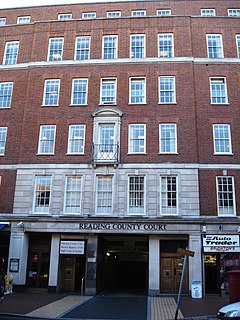External links
| This article about Canadian law is a stub. You can help Wikipedia by expanding it. |
The Residential Tenancies Act (RTA) is the law that governs rental housing agreements (leases) in the Canadian province of Alberta.
The Residential Tenancies Act outlines two possible types of rental agreement: Fixed Term and Periodic.
Fixed Term rental agreements are strict binding contacts that outline the terms of property rental for a set period of time - usually one year. These leases cannot be terminated until the end of the specified rental period, or unless there is a breach of the lease agreement or certain provisions of the Act itself, as laid out in the "Tenant's Remedies" and "Landlord's Remedies" sections of the act.
Periodic rental agreements are open-ended and can be terminated (no-fault) by giving the required amount of notice.
| This article about Canadian law is a stub. You can help Wikipedia by expanding it. |
An estate in land is an interest in real property that is or may become possessory.

A landlord is the owner of a house, apartment, condominium, land, or real estate which is rented or leased to an individual or business, who is called a tenant. When a juristic person is in this position, the term landlord is used. Other terms include lessor and owner. The term landlady may be used for female owners, and lessor may be used regardless of gender. The manager of a pub in the United Kingdom, strictly speaking a licensed victualler, is referred to as the landlord/lady.

Eviction is the removal of a tenant from rental property by the landlord. In some jurisdictions it may also involve the removal of persons from premises that were foreclosed by a mortgagee.

A lease is a contractual arrangement calling for the lessee (user) to pay the lessor (owner) for use of an asset. Property, buildings and vehicles are common assets that are leased. Industrial or business equipment is also leased.
A leasehold estate is an ownership of a temporary right to hold land or property in which a lessee or a tenant holds rights of real property by some form of title from a lessor or landlord. Although a tenant does hold rights to real property, a leasehold estate is typically considered personal property.
Property management is the operation, control, maintenance, and oversight of real estate and physical property. This can include residential, commercial, and land real estate. Management indicates the need of real estate to be cared for and monitored, with accountability for and attention its useful life and condition considered. This is much akin to the role of management in any business.
A rental agreement is a contract of rental, usually written, between the owner of a property and a renter who desires to have temporary possession of the property; it is distinguished from a lease, which is more typically for a fixed term. As a minimum, the agreement identifies the parties, the property, the term of the rental, and the amount of rent for the term. The owner of the property may be referred to as the lessor and the renter as the lessee.
The assured shorthold tenancy is the default legal category of residential tenancy in England and Wales. It is a form of assured tenancy with limited security of tenure, which was introduced by the Housing Act 1988 and saw an important default provision and a widening of its definition made by the Housing Act 1996. Since 28 February 1997 in respect of accommodation to new tenants who are new to their landlords, the assured shorthold tenancy has become the most common form of arrangement that involves a private residential landlord. The equivalent in Scotland is short assured tenancy.
The Landlord and Tenant Act 1954 is an act of the United Kingdom Parliament extending to England and Wales. Part II of the act is a statutory code governing business tenancies. Part I of the act, which deals with the protection of residential tenancies, is now largely superseded.

An assured tenancy is a legal category of residential tenancy to an individual in English land law. Statute affords a tenant under an assured tenancy a degree of security of tenure. A tenant under an assured tenancy may not be evicted without a reasonable ground in the Housing Act 1988 and, where periodic changes in rent are potentially subject to a challenge before a rent assessment committee.

Bruton v London and Quadrant Housing Trust[1999] UKHL 26 is an English land law case that examined the rights of a 'tenant' in a situation where the 'landlord', a charitable housing association had no authority to grant a tenancy, but in which the 'tenant' sought to enforce the duty to repair on the association implied under landlord and tenant statutes. The effect of the case is to create the relationship of de facto landlord and tenant between the parties.

Street v Mountford[1985] UKHL 4 is an English land law case from the House of Lords. It set out principles to determine whether someone who occupied a property had a tenancy, or only a licence. This mattered for the purpose of statutory tenant rights to a reasonable rent, and had a wider significance as a lease had "proprietary" status and would bind third parties.
The Ellis Act is a 1985 California state law that allows landlords to evict residential tenants to "go out of the rental business" in spite of desires by local governments to compel them to continue providing rental housing.
In England and Wales, a section 21 notice, also known as a section 21 notice of possession or a section 21 eviction, is the notice which a landlord must give to their tenant to begin the process to take possession of a property let on an assured shorthold tenancy without providing a reason for wishing to take possession. The expiry of a section 21 notice does not bring a tenancy to its end. The tenancy would only be ended by a landlord obtaining an order for possession from a court, and then having that order executed by a County Court bailiff or High Court enforcement officer. Such an order for possession may not be made to take effect earlier than six months from the beginning of the first tenancy unless the tenancy is a demoted assured shorthold tenancy. If the court is satisfied that a landlord is entitled to possession, it must make an order for possession, for a date no later than 14 days after the making of the order unless exceptional hardship would be caused to the tenant in which case possession may be postponed to a date no later than six weeks after the making of the order. The court has no power to grant any adjournment or stay of execution from enforcement unless the tenant has a disability discrimination, public law or human rights defence, or the case is pending an appeal.
Rent control in Scotland is based upon the statutory codes relating to private sector residential tenancies. Although not strictly within the private sector, tenancies granted by housing associations, etc., are dealt with as far as is appropriate in this context. Controlling prices, along with security of tenure and oversight by an independent regulator or the courts, is a part of rent regulation.

Highway Properties Ltd v Kelly, Douglas and Co Ltd is a leading Canadian property law case concerning commercial landlord-tenant relationships decided by the Supreme Court of Canada.
The Landlord and Tenant Board is an adjudicative tribunal operated by the government of Ontario that provides dispute resolution of landlord and tenant matters under the Residential Tenancies Act, 2006. It is one of the eight social justice tribunals in Ontario.
The Residential Tenancies Act, 2006 is the law in the province of Ontario, Canada, that governs landlord and tenant relations in residential rental accommodations. The Act received royal assent on June 22, 2006, and was proclaimed into law on January 31, 2007. The Act repealed and replaced the Tenant Protection Act, 1997. Ontario's Landlord and Tenant Board is governed by the act.
Rent regulation in England and Wales is the part of English land law that creates rights and obligations for tenants and landlords. The main areas of regulation concern,
The Model Tenancy Act, 2019 is a proposed tenancy law by the Government of India, designed to overhaul the tenancy market in India.